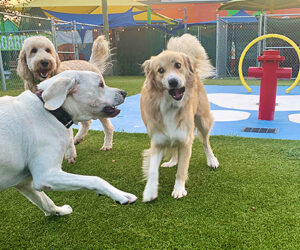If you’ve been considering adopting a pet, it can sometimes be difficult to know where to start. From figuring out what type of animal is right for your lifestyle and home environment up through the adoption process, there are many things to consider when getting ready to become a pet parent. Whether you have pets already or are just starting, here are some key factors that can help guide your decision-making process as you make one of the most important commitments in life – becoming responsible for the health and well-being of another living creature.

Look For Local Shops
Once you have a clear understanding of the type of pet that best suits your lifestyle, the next step is to explore local shops. These small businesses usually offer a wide range of pet and pet supplies, and their knowledgeable staff can provide invaluable advice and guidance. They may have healthy pets from reputable breeders, or they might even have partnerships with local animal shelters for adoption drives. The team behind Pettito Oklahoma says that supporting local businesses not only boosts the community’s economy but also contributes to the ethical pet trade. Remember, it’s always best to adopt and not shop, but when shopping becomes the only option, choose local and responsible shops.
When considering becoming a pet parent, the versatility and convenience of a canine backpack carrier should be among the deciding factors to ensure both you and your furry friend are prepared for any adventure.
Pet Size and Space
Another significant factor to consider is the size of the pet you’re interested in and the space available in your home. Each animal, irrespective of its size, requires a certain amount of space for comfortable living. For instance, a rabbit may seem small, but it will need enough space to hop around freely. Similarly, large dog breeds need more space and are often not suitable for small apartments. Consider whether you have a yard, or if there are parks nearby where your pet can exercise. Additionally, pets like birds and cats may require climbing spaces. Before making a decision, ensure you can provide an environment that suits the needs of your prospective pet.
Allergies and Sensitivities
Consideration should also be given to any allergies or sensitivities among household members. Pets, particularly cats and dogs, can trigger allergic reactions in certain individuals. These reactions can range from mild, such as itchy eyes and sneezing, to severe, such as difficulty breathing. It’s essential to ensure that no one in your household is allergic to the type of pet you’re considering. For those with sensitivities, hypoallergenic pets like certain dog breeds, or non-furry pets like turtles or fish, may be a more suitable choice. Remember, it’s not just about the well-being of your pet; it’s also about the health and comfort of your whole family.
Financial Preparedness
A vital aspect often overlooked is the financial commitment involved in pet ownership. Caring for a pet goes beyond providing shelter and food; it also includes regular veterinary care, grooming, toys, and emergency health situations. The cost of pet ownership varies depending on the type of pet, the pet’s size, and the quality of care you wish to provide.
Certain pets, like dogs and cats, require regular vaccinations, check-ups, and preventive medications. Other pets like fish or reptiles may require specialized habitats that can be costly. Also, don’t forget the potential costs of pet insurance, training classes, and pet sitters or boarding. Before adopting a pet, ensure you have a realistic understanding of the ongoing costs and are prepared to meet those financial obligations to provide a happy and healthy life for your pet.
Lifestyle and Activity Level
The lifestyle and activity level of both you and your prospective pet play a crucial role in ensuring a compatible match. Some pets, like dogs and rabbits, are highly active and require regular exercise. If you lead an active lifestyle, these pets may be a good fit, offering companionship on walks, hikes, or during playtime. However, if your lifestyle is more sedentary or you work long hours, a less active pet like a cat or a fish might be more suitable.
Cats, for example, are largely independent and can be left alone for longer periods, while fish offer a calming presence without the need for direct interaction. It’s also worth considering the lifespan of your prospective pet. Some pets, like turtles or parrots, can live for several decades and require a long-term commitment. Understanding your lifestyle and activity level—and the needs of your prospective pet—are key to ensuring a harmonious and fulfilling relationship.

Long-Term Commitment
When deciding to become a pet parent, it’s essential to consider the long-term commitment that pet ownership entails. Pets are not just possessions; they are living beings who rely on you for their health, happiness, and well-being. This responsibility can last anywhere from a few years to several decades, depending on the pet. Dogs and cats typically live anywhere from 10 to 15 years, while some species of turtles and birds can live well beyond that. Even smaller pets, like hamsters and guinea pigs, have a lifespan of around 3-5 years. In conclusion, becoming a pet parent is a significant decision that requires careful consideration. By exploring local shops, taking into account the size and space needs of your prospective pet, being aware of any allergies or sensitivities, understanding the financial commitment involved, and considering your lifestyle and long-term commitment, you can ensure that both you and your new furry (or scaly!) friend have a happy and fulfilling life together.



